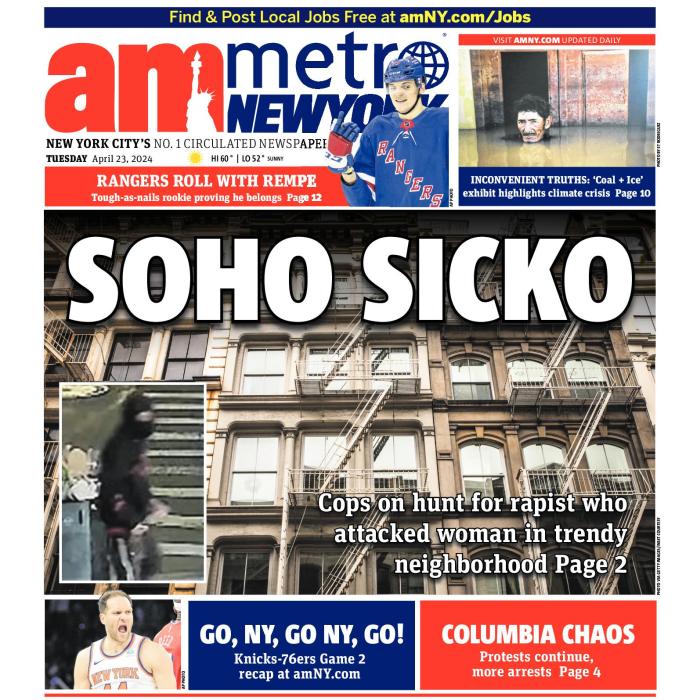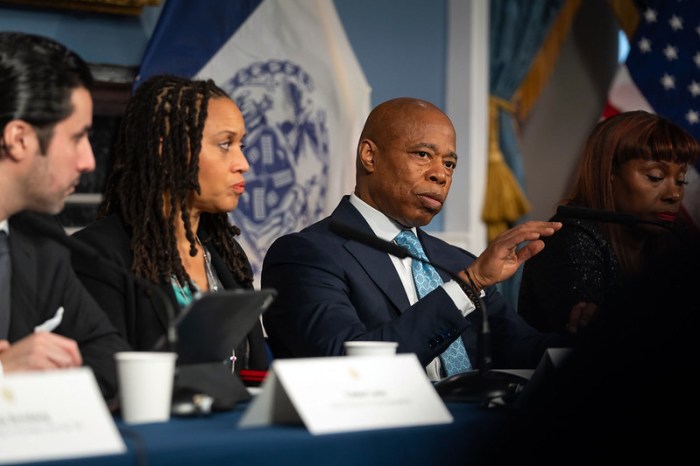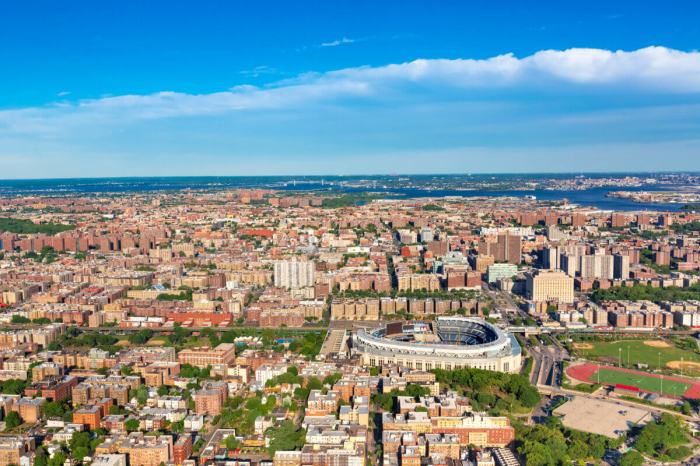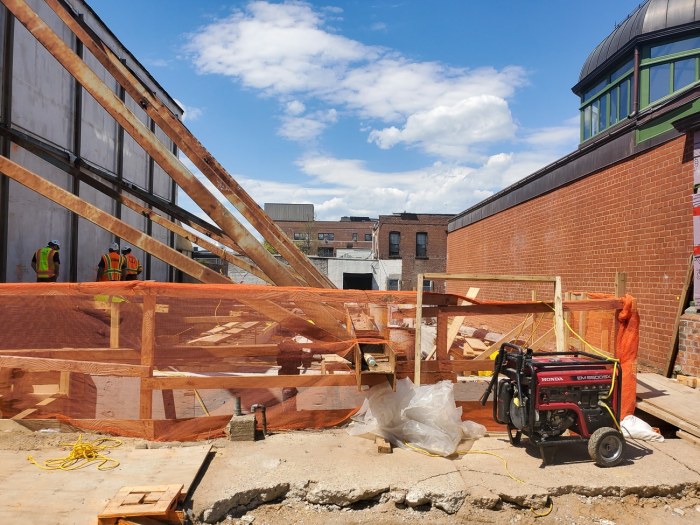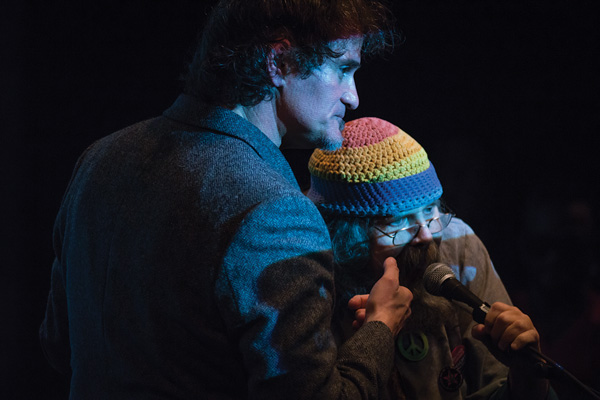
BY ALAN KAUFMAN | Last April, a broken heart brought me back to the East Village.
While on a book tour in Europe I had met a Berlin writer with whom I fell deeply in love. Trapped in a dead marriage, she flew to me in San Francisco where for months we lived warmly together and made plans to relocate to Manhattan. But at the last possible moment, without warning, she returned to her loveless Berlin life and I, completely shattered, landed here alone.
That month, a gas line allegedly illegally tapped by a greedy landlord exploded on Second Ave. and E. Seventh St., killing two people and injuring 140 others.
The media called it “The East Village 9/11.” Each day I walked past the ruins where locals stood in shock, some weeping. In a way, the building’s charred remains resembled my own torched insides.
I knew that the only chance to get free of my pain was to try and help those who had suffered loss greater than my own.
I went to Lorcan Otway, owner of Theatre 80 St. Mark’s, with the idea to hold a relief benefit concert for the East Village fire victims. Without hesitation, he agreed.
In five furious days I organized the event. On all sides of me help appeared: Jim Storm, Clayton Patterson, Isaac Hindin-Miller, Roderick Romero, Jackie Rudin, Jennifer Pugh and so many others.
On April 12, to a sold-out audience in Theatre 80 St. Marks, Patti Smith and a broad array of local talents, including David Peel and The Lower East Side, Jesse Malin, Chris Riffle, Mollie King, On-ka Davis, The Bowery Boys, Tammy Faye Starlight and others, performed a historic concert, to which everyone from Sting and Yoko Ono to Stone Gossard of Pearl Jam and Gertrude Stein of The Boris Lurie Foundation donated close to $50,000. It all went to GOLES (Good Old Lower East Side) to assist the very worst cases affected by the disaster.
And what did Lorcan get? Not a cent.
He got what I got: a bettered heart. What he helped me to do, with the devoted help of his lovely wife, Jeannie, was to allow community to respond creatively to tragedy. What he did was to offer his stage for healing to occur for all of us. He upheld a belief I share that New York City really is and always will be about being one big crazy family where talented people somehow help each other to go on, endure, creatively thrive, live their dreams.
I know that Lorcan fights each day to keep his theater’s doors open, despite the radical changes going on around it. For he knows that so many individuals depend upon his efforts. He has turned the place into a humane communal hub for Off Broadway theater, recovery meetings, a congenial tavern for after-hours fellowship and even a Museum of the American Gangster. (Before becoming Theatre 80, the building had been a mobster hideout.)
Imagine if it were sold off, if greedy developers were to build in its stead yet another faceless and unaffordable glass-and-steel condo-hive, peddled off to overseas investors who will purchase them for their kids to drop in on two weeks of a year for epic vomitous drunks on Avenue A. Such tenants leave the flats empty for the rest of the year. That’s how San Francisco has been made into a ghost town. I know: I’ve lived through it. New York is fast getting there.
To lose Theatre 80 would not be just one more sad tale of the way in which developers have made the East Village unrecognizable to itself, but a death blow for this still culturally dynamic district. Theatre 80’s demise would be the downfall of not only a great legacy but of ourselves.
Each day that we would pass this wonderful venue’s ruins we would see ourselves mirrored in its destruction. Each day that we would note its absence, we would know that we too are expendable, as individuals, as families, as a community, as a history, and it would be as though we had never been here at all.
Kaufman’s books include the memoirs “Drunken Angel” and
“Jew Boy” and the novel “Matches.” He is the editor of the anthologies “The Outlaw Bible of American Poetry,” “The Outlaw Bible of American Literature” (with Barney Rosset) and “The Outlaw Bible of American Art,” forthcoming in June 2016.
